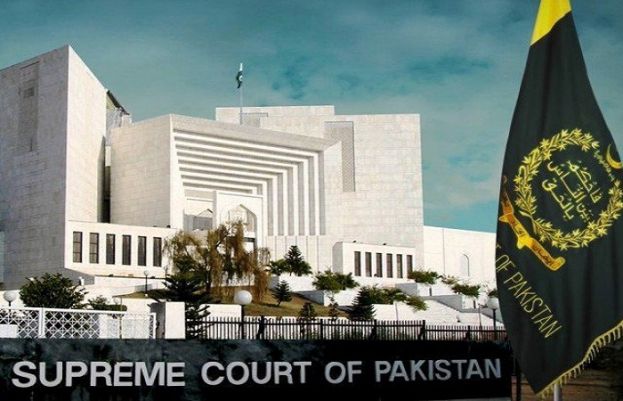
A two-member bench of the apex court comprising Justice Qazi Faez Isa and Justice Jamal Khan Mandokhel, while hearing another matter, took up the issue on August 20 when former president of the Press Association of the Supreme Court (PAS), Abdul Qayyum Siddiqui, brought to the court's notice an application over the alleged harassment of journalists.
The court directed filing a petition which was later filed by petitioners Imran Shafqat and Aamir Mir along with the Press Association of Supreme Court (PAS).
The court held that harassing journalists and depriving them of performing their professional obligations is a matter of public importance, as the Constitution guarantees freedom of speech, freedom of expression and freedom of the press.
Filed under Article 184(3) of the Constitution, the petition requested the apex court to initiate action to ensure their fundamental rights and take action against all those who are violating them.
In an order issued on August 20, the SC summoned the director general of the Federal Investigation Agency (FIA), the Islamabad police chief as well as the secretaries of interior, information and religious affairs on August 26.
However, the next day a five-judge SC bench was constituted, headed by Acting Chief Justice Umar Ata Bandial,and including Justice Ijazul Ahsan, Justice Munib Akhtar, Justice Qazi Muhammad Amin Ahmad and Justice Muhammad Ali Mazhar, to provide clarity with regard to the court’s suo motu jurisdiction.
The new bench, on Monday, put the August 20 order in abeyance, observing that its implementation may "obscure and unsettle the practice of invoking suo motu jurisdiction".
The August 20 order now stands withdrawn, the SC said in its written judgment today.
According to the judgment, no bench can take a suo motu notice without explicit permission from the chief justice, and order an inquiry by any competent authority.
The judgment went on to state that a bench may recommend to the chief justice to take suo motu notice but cannot do so on its own.
It further stated that all such suo motu notices, which were taken without the knowledge of the chief justice, hereby stand dismissed. However, all pending suo motu cases under benches set up by the chief justice will continue, the judgment said.
It said that now, the PAS petition will be put before the chief justice.
The judgment also shed light the principles of suo motu notices under Article 184-3 of the Constitution.
A detailed decision on the authority to take up suo motu notices will be issued later, the Supreme Court said.
On Wednesday, in a letter to the CJP, Justice Isa said the two-member bench was not informed before the five-member larger bench was constituted.
The Constitution of Pakistan lists various jurisdictions of the Supreme Court, he said, adding that the apex court has no jurisdiction to monitor the affairs of its own bench.
A five-member bench has no jurisdiction to hear the case, Justice Isa said.
If a five-member larger bench continues hearing the case, it will be unconstitutional, he wrote.
Justice Isa argued that once the case was decided, if anyone felt it was not dealt with in accordance to the Constitution, they had the option to review it.
He said the Constitution does not allow "monitoring jurisdiction".
Criticising the SC registrar, Justice Isa said that the registrar had acted to "serve the interest of the executive and to protect his colleagues".
Justice Isa also said that a copy of his letter should be uploaded on the website of the Supreme Court.
from latest-news - SUCH TV https://ift.tt/3zkAgUz
via IFTTT
